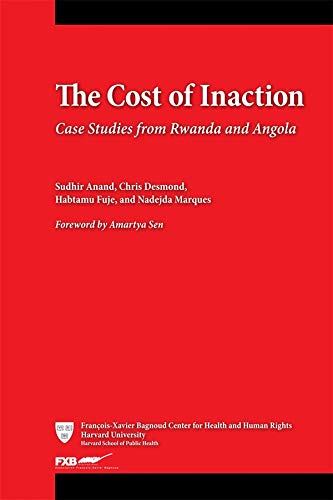Publications
Transportation Cost, Fuel Subsidies and Commodity Prices, 2020, World Trade Review, Volume 9, pp. s88 – s97
Despite being at the forefront of the global policy agenda, fuel subsidy reform is understudied and its impact on trade is not particularly well understood. This type of reform could have a huge impact on market performance by increasing transportation costs. I present a case study from Ethiopia, which removed its fuel subsidies and increased the price of diesel price by 39% overnight on 4 October 2008. What is the impact of such an increase in diesel price on transportation costs and hence grain prices in developing countries such as Ethiopia? Read More
What is the impact of drought on prices? Evidence from Ethiopia (with Ruth Hill), Economic Development and Cultural Change (Forthcoming), 2020
The impact of drought on household welfare is the cumulative effect of crop losses and price changes in a local economy that are triggered by these initial losses. This paper combines data on monthly grain prices and wages in 82 retail markets over 17 years with data on district-level weather shocks to quantify the impact of drought on local prices and how this impact varies by month after harvest. The results show that price increases occur immediately after the completion of harvest and then dissipate so that inflationary effects are quite low during the lean season, contrary to commonly held views. Read More
Fossil Fuel Subsidy Reforms, Spatial Market Integration, and Welfare: Evidence from a Natural Experiment in Ethiopia, American Journal of Agricultural Economics, 101(1) 270-290, 2018
In light of climate change and tight fiscal conditions after the 2008 crises, fuel subsidy reform has become a popular policy. The G20 leaders, in their Pittsburgh, Pennsylvania meeting in 2009, committed to phase out inefficient fuel subsidies. However, little is known about the implications of removing subsidies on food prices and welfare. Read More
When do in-service teacher training and books improve student achievement? Experimental evidence from Mongolia (with Prateek Tandon), Review of Development Economics, 22 (3) 1360-1383, 2018
This study presents evidence from a randomized controlled trial in Mongolia on the impact of in-service teacher training and books, both as separate educational inputs and as a package. It tests for complementarity of inputs and nonlinearity of returns from education investment, as measured in students’ test scores. Read More
The Cost of Inaction: Case Studies from Rwanda and Angola, Harvard University Press, ISBN: 0674065581 (with Sudhir Anand, Chris Desmond, and Nadejda Marques), 2012
This book is motivated by the idea that the cost of inaction can be much greater than the cost of action. Inaction can lead to serious negative consequences—for individuals, the economy, and society. The consequences of a failure to reduce extreme poverty, for example, typically include malnutrition, preventable morbidity, premature mortality, incomplete basic education, and other human and social development costs. In this volume, the authors seek to clarify exactly what is meant by “cost of inaction.” Read More
Blogs about the Book by:
Shanta Devarajan, World Bank’s Chief Economist, Read
Francisco Mejía, Inter-American Development Bank, Read
What do we mean by the cost of inaction? Prof. Sudhir Anand, Oxford University, explains:
Role of Governance in Explaining Economic Growth in Sub-Saharan Africa, Harvard African Policy Journal, Vol. IV, 2008
Sub-Saharan Africa (SSA) has been growing at very low rates over the past few decades. The roles of malfunctioning institutions, geographic misfortune, and lack of integration in explaining this have been the subject of much debate. This article assesses the role of institutions in explaining the slow growth of Africa. In addition, it explores one of the possible transmission channels — aggregate technical inefficiency — through which institutions affect economic growth. Read More
Teaching Experience
Columbia University
Teaching Fellow (2012-2014)
Courses:
- Macroeconomic Policy Management (with Francesco Brindisi)
- Analysis of Large-Scale Data (with Matt Neidell)
- Challenges of Sustainable Development (with Jeff Sachs)
Harvard University
Course Assistant (2009-2010)
Courses:
- Microeconomic Analysis (with Nolan H. Miller)
- Econometrics (with Alberto Abadie)

